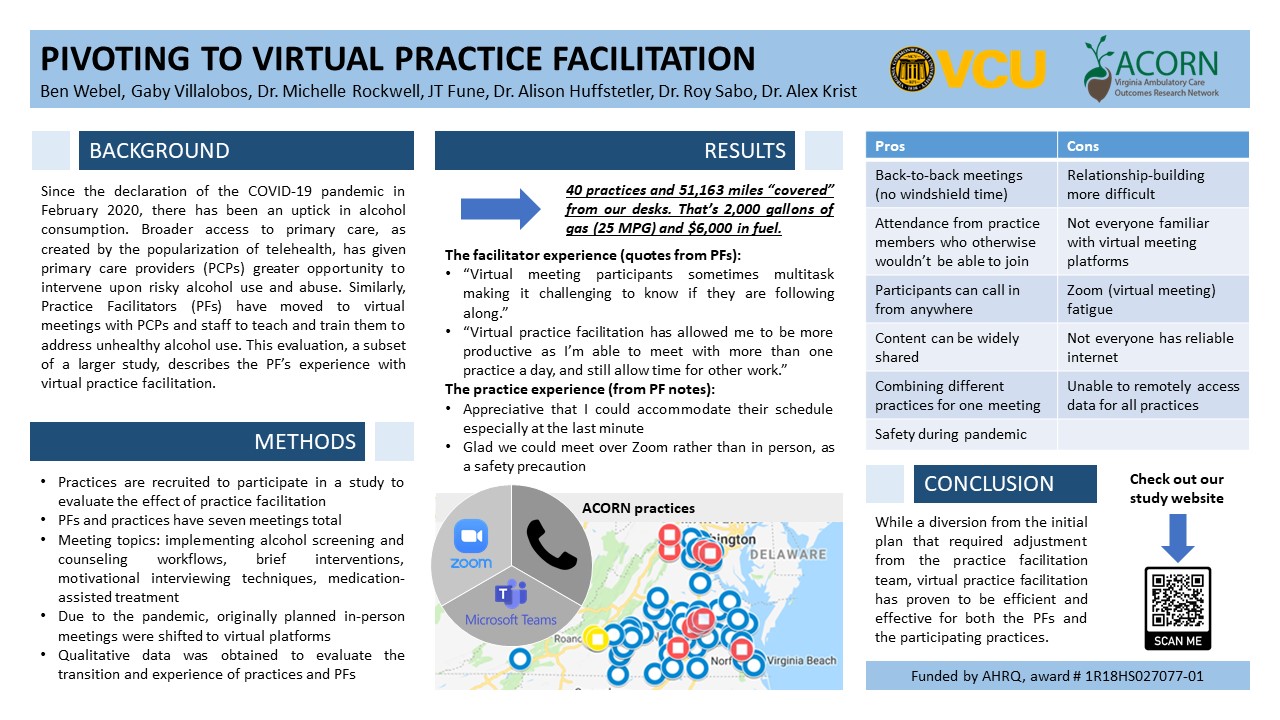PI04: Pivoting to Virtual Practice Facilitation
Benjamin Webel, BA; John Fune; Alison Huffstetler, MD; Michelle Rockwell, PhD, RD; Alex Krist, MD, MPH; Roy Sabo, PhD
Abstract
Setting: 125 primary care practices in the Commonwealth of Virginia.
Methods: Practices are recruited to participate in the study based on practice facilitation. PFs and practices have seven meetings total that focus on implementing alcohol screening and counseling workflows, brief interventions, motivational interviewing techniques, and medication-assisted treatment. Due to the pandemic, the originally planned in-person meetings were shifted to virtual platforms. Qualitative data was obtained to evaluate the transition and experience of practices and PFs.
Results: As of mid-June 2021, 40 primary care practices have enrolled. The Virginia PF team recorded both limitations and advantages of the virtual format. Without in-person meetings, relationship-building is constrained by the scheduled time. In cases where the practice is unable to securely transfer data, PFs have made site visits to conduct chart review. Overall, PFs have found virtual facilitation to be quite useful. It has allowed back-to-back meetings with different practices, attendance from practice members who otherwise wouldn’t be able to attend, participants to call in from anywhere, and for content to be widely shared. PFs are looking to combine practices for some meetings, which wouldn’t be possible if not virtual due to geographic location. Importantly, virtual facilitation has permitted the team to safely continue with study efforts throughout the pandemic. Despite varying levels of comfort, the ability to conduct meetings virtually – whether by Zoom, Microsoft Teams, or phone – has never been a barrier to enrollment in this study.
Conclusions or next steps: While a diversion from the initial plan that required adjustment from the practice facilitation team, virtual practice facilitation has proven to be efficient and effective for both the PFs and the participating practices.

Gillian Bartlett (NACRG President)
gillian.bartlett@health.missouri.edu 8/5/2021Very interesting - it strikes me that these issues as presented apply to research teams, patient partners and other health care settings. I will be interested to see what you retain when these constraints become a choice versus a mandate.